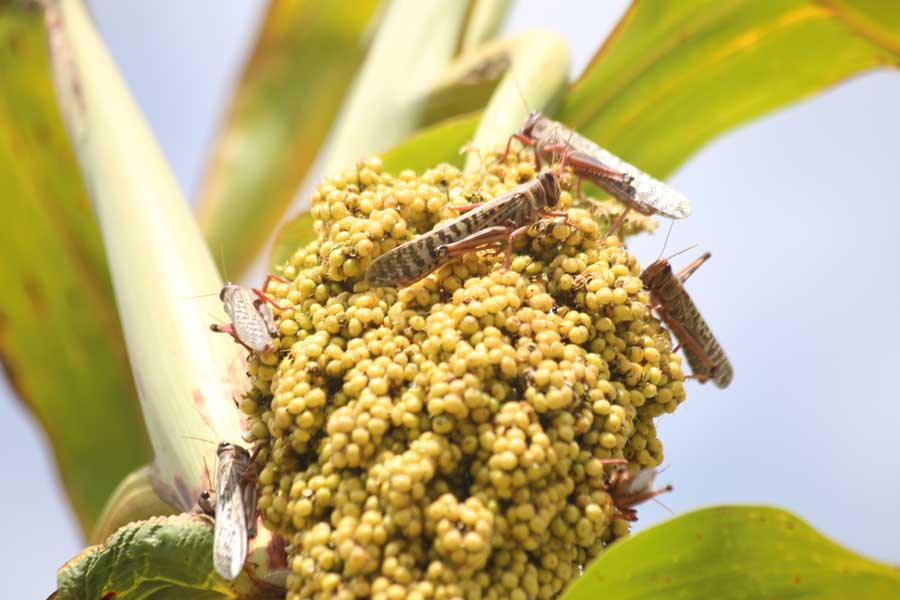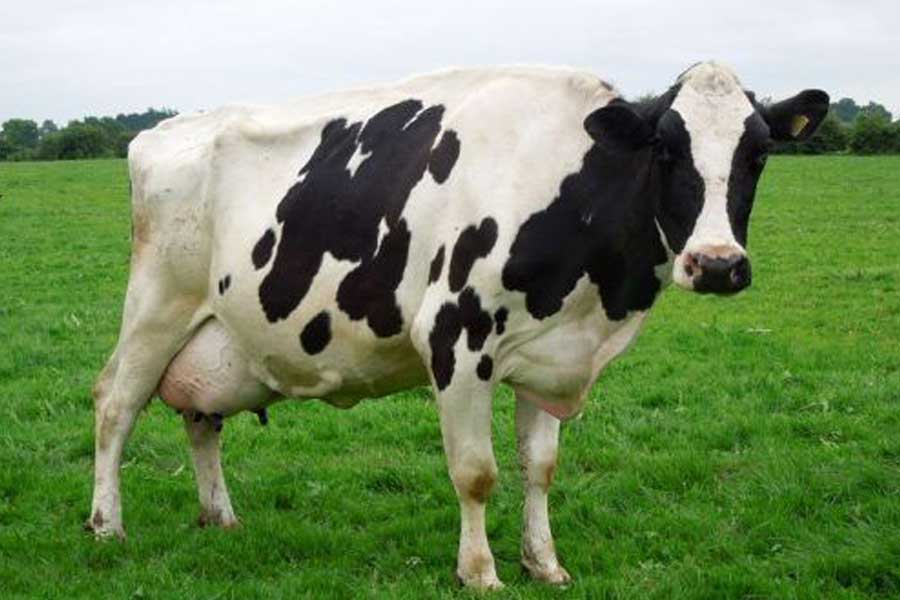
Radar | Jul 17,2022
Jan 7 , 2024
By BERSABEH GEBRE ( FORTUNE STAFF WRITER )
An ongoing wheat shortage plaguing the flour industry and prompting factory closures are sending shockwaves through the animal feed sector. The bi-product of wheat which is essential for feed production, has become scarce due to low production and led to soaring prices which in turn made dairy farmers cautious about difficulties to maintain livestock health and productivity.
In a recent plea to the ministries of Trade & Regional Integration and Industry, the Ethiopian Millers Association highlighted the impending risk of around 3,000 employees being laid off in the flour industry. The collateral impact on the animal feed industry is now surfacing as wheat scarcity disrupts the production of essential feed byproducts with prices shooting up from 1400 Br to 2,500 Br this year.
Acute wheat shortages assail the flour industry, prompting some factories to shut while others continue to barely maintain operations at significantly lower levels than their full capacity. Meanwhile, imports through the Franco Valuta scheme proliferate in the market.
The 28-year-old Association, under Muluneh Girma, cautions against the mass closure of factories as millers are compounded by a nexus of crises in demand and input provision.
Five millers have already shut down operations.
The current harvest's seasons' poor yield due to problems of excess moisture compounded by the pervasive rise in plant pathogens, which has wreaked havoc on potential supply to the millers, is also indicated as an additional problem.
"Five millers have already shut down operations," Muluneh said.
He said the quantity of production largely rests on the quality of suitable wheat harvests that arrive at the factory floors, prompting the Association to call for an urgent meeting with the ministries.
"How is imported flour allowed with over 450 millers in the country?" he enquired.
The lack of wheat supply to the 349 local millers is a contrasting development to the wheat export initiative, which was purportedly implemented last year as Ethiopia earned 50 dollars a quintal for exported items.
Botanists reveal that wheat production and productivity are affected by complex and interactive effects of biotic and abiotic factors and socio-economic challenges, particularly in smallholder farming systems. The Ministry of Agriculture has laid out plans to produce upwards of 117 million quintals of wheat on three million hectares of land this year as Ethiopia's continued march towards wheat self-sufficiency progresses.
Wheat diseases, such as stem rust, stripe or yellow rust, leaf rust and pests remain critical biotic factors affecting wheat production.
Hussien Mohammed, owner of Mizan Flour & Biscuit Factory, reveals they have completely stopped production, struggling to obtain sufficient wheat supply for operations. The Company established nearly a decade ago with eight million Birr capital and a daily production capacity of 400qtl, has faced an existential dilemma in the past year.
"We're on the verge of shutting down," he told Fortune.
Hussien observes the sharp price difference of 700 Br between Mizan's factory gate price and the imported alternative, which is sold at 7,200 Br, as another major hurdle faced by local manufacturers. Low quality of wheat attributed to poor fertiliser use and insect damage on farms as the primary cause for the production lull, according to Hussien, making them lose their competitive edge.
"We might lay off about a dozen employees soon," he said.
Officials at the Ministry of Industry refer the responsibility of regulating the quantity of FrancoValuta imports to the Ministry. However, the general cutback in production by the millers had a direct impact on animal feed, which is one of the main byproducts of the wheat milling process.
Petros expresses deep concerns over the mounting feed prices, emphasising the direct threat to the productivity of his 15 cattle. The rising costs and difficulties in feeding cattle have resulted in a 10ltr reduction in daily milk output from a single cow. With the dairy industry at the forefront of the crisis, the overall production of 4.1 billion litres of milk last year in Ethiopia is at risk.
The Ministry of Agriculture's plans to achieve wheat self-sufficiency may alleviate the overall wheat shortages, but the animal feed crisis remains a pressing concern. The Association's warning of a pending risk to the dairy industry is becoming a harsh reality as declining wheat deliveries translate into diminished animal feed byproducts.
Ethiopia was able to produce 4.1 billion litres of milk last year, while Kenya, which has a significantly lower cattle population, outproduced it by around 900,000ltr.
As the animal feed crisis unfolds, the challenges faced by dairy farmers underscore the urgent need to safeguard both the agricultural and livestock sectors.
According to economists such as Assefa Tilahun, the focus on wheat exports, driven by political ambitions, has led to the current shortages. He calls for a higher-order priority on productivity, suggesting that the solution lies in efficient land usage and contract farming.
"Small fragmented land holdings won't lead to self-sufficiency," he said.
PUBLISHED ON
Jan 07,2024 [ VOL
24 , NO
1236]

Radar | Jul 17,2022

Covid-19 | May 23,2020

Agenda | Nov 16,2019

Fortune News | May 09,2020

Agenda | Aug 18,2024

In-Picture | Jul 27,2025

Radar | Apr 19,2025

Fortune News | Jun 07,2020

Viewpoints | Oct 28,2023

Fortune News | Sep 10,2022

Dec 22 , 2024 . By TIZITA SHEWAFERAW
Charged with transforming colossal state-owned enterprises into modern and competitiv...

Aug 18 , 2024 . By AKSAH ITALO
Although predictable Yonas Zerihun's job in the ride-hailing service is not immune to...

Jul 28 , 2024 . By TIZITA SHEWAFERAW
Unhabitual, perhaps too many, Samuel Gebreyohannes, 38, used to occasionally enjoy a couple of beers at breakfast. However, he recently swit...

Jul 13 , 2024 . By AKSAH ITALO
Investors who rely on tractors, trucks, and field vehicles for commuting, transporting commodities, and f...

Oct 25 , 2025
The regulatory machinery is on overdrive. In only two years, no fewer than 35 new pro...

Oct 18 , 2025
The political establishment, notably the ruling party and its top brass, has become p...

Oct 11 , 2025
Ladislas Farago, a roving Associated Press (AP) correspondent, arrived in Ethiopia in...

Oct 4 , 2025
Eyob Tekalegn (PhD) had been in the Governor's chair for only weeks when, on Septembe...